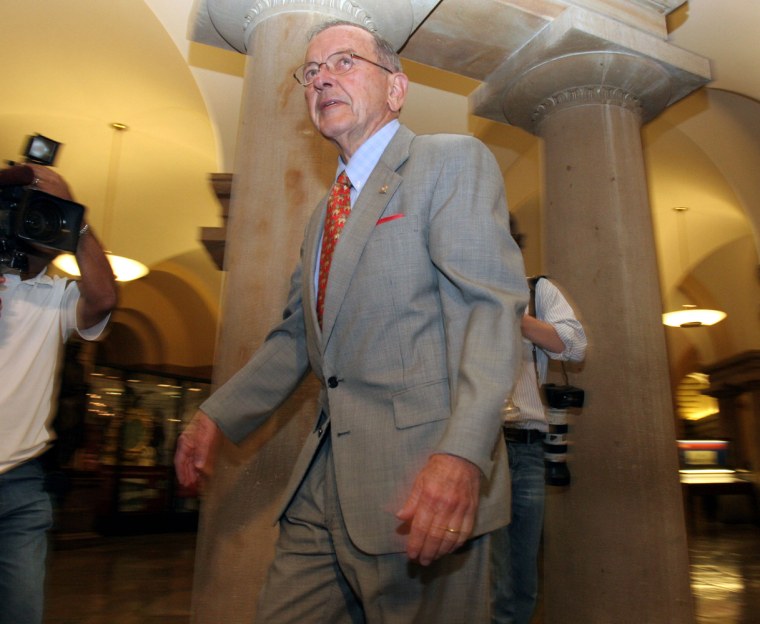In each Senate election cycle, the political parties must play the hands they're dealt. Opportunities to reshuffle the deck or trade in cards are virtually nonexistent. But, usually, each party finds it holds both high and low cards -- as well as the possibility of a winning hand. For 2008, though, Senate Democrats have been dealt the political equivalent of a royal flush, while Republicans received nothing but low cards.
The GOP must defend 22 seats, compared with just 12 for the Democrats. Republicans are stuck with at least five open seats; no Democratic incumbent is retiring. Democrats also hold a substantial fundraising advantage. And, finally, Republicans must play their lousy hand in a national political environment hostile to their party.
The 10 most competitive Senate races of 2008 are expected to be for seats now occupied by nine Republicans and just one Democrat. Republicans are retiring from four of those seats -- in Colorado (Wayne Allard), Nebraska (Chuck Hagel), New Mexico (Pete Domenici), and Virginia (John Warner). Vulnerable incumbents are running for re-election to the five other endangered GOP seats: Alaska's Ted Stevens, Maine's Susan Collins, Minnesota's Norm Coleman, New Hampshire's John Sununu, and Oregon's Gordon Smith. (Larry Craig of Idaho is the fifth Republican retiring from the Senate, but the GOP is expected to hold that seat easily.) The lone vulnerable Democratic incumbent is Louisiana's Mary Landrieu. A rundown of the contests to watch follows.
Alaska
Six months ago, anyone predicting that GOP Sen. Ted Stevens would become vulnerable in his bid for a seventh full term probably would have blamed his age. He turns 84 next month. Instead, Stevens is in trouble because of an FBI investigation. The bureau and the senator aren't talking, but most observers think that the probe stems from allegations that Stevens took money for legislative favors.
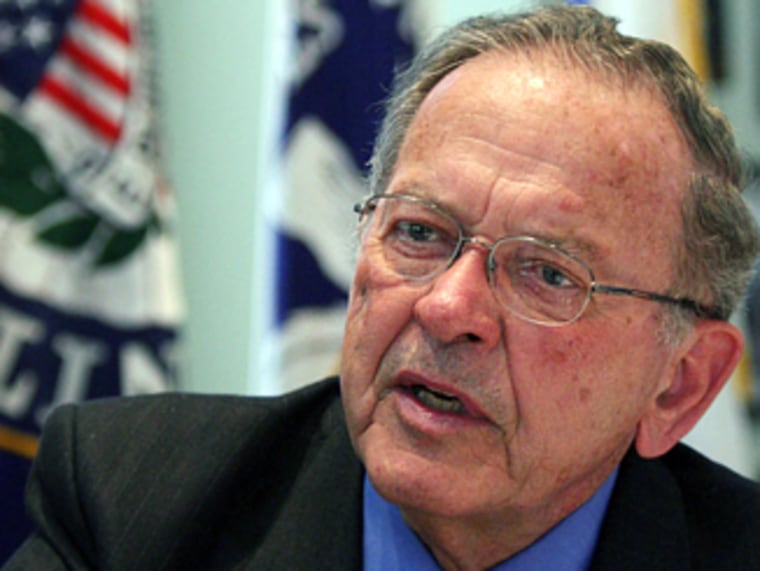
The senator is known for bringing billions of dollars in federal money to Alaska, and he has dominated state politics for decades, winning re-election with ease. At this point, Stevens's legal troubles raise more questions than answers. Will he be indicted? Will he run for re-election? Will he face challengers in the primary? And, regardless of what happens on the Republican side, can Democrats field a candidate who can take advantage of the situation in a solidly red state during a presidential election year?
Alaska's Democratic bench is nearly bare, but insiders often mention Anchorage Mayor Mark Begich as the party's first choice.
Stevens's ratings have plummeted in recent months. No one knows what his future holds, but it is clear that a normally safe GOP seat has become another headache for the party.
Colorado
Encouraged by their successes in the state in the past two elections, many Democrats have already colored Colorado blue for 2008 and have put this Senate seat in their win column. Their exuberance may be premature.
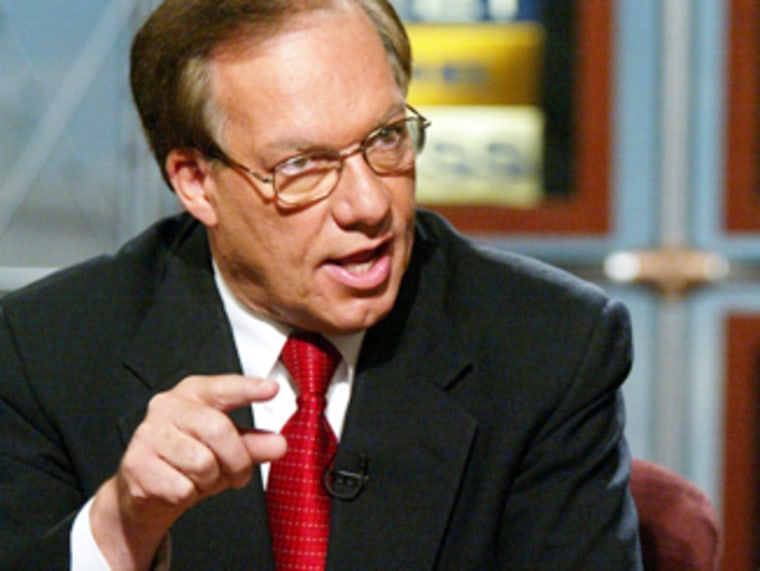
This contest for the seat of two-term GOP Sen. Wayne Allard, who is retiring, is shaping up to be the kind of left-right ideological battle that Colorado is famous for hosting. The presumptive nominees are Democratic Rep. Mark Udall and former Republican Rep. Bob Schaffer. First elected in 1998, Udall represents the 2nd Congressional District, which includes unabashedly liberal Boulder and extends west. Schaffer served in Congress from 1997 until 2002, representing the 4th District, which then encompassed the eastern third of the state and was as conservative as Udall's district is liberal.
Schaffer and Udall have polar-opposite voting records that each will use to paint the other as out of step with Colorado. Udall, who indicated in 2004 that he would run, has a big but not insurmountable head start. The polling that has been made public shows a potentially tight contest.
Because neither candidate will have trouble consolidating his base, independent voters will decide the race.
Louisiana
Mary Landrieu holds the dubious distinction of being the only endangered Senate Democrat. And many of her problems are not of her own making.
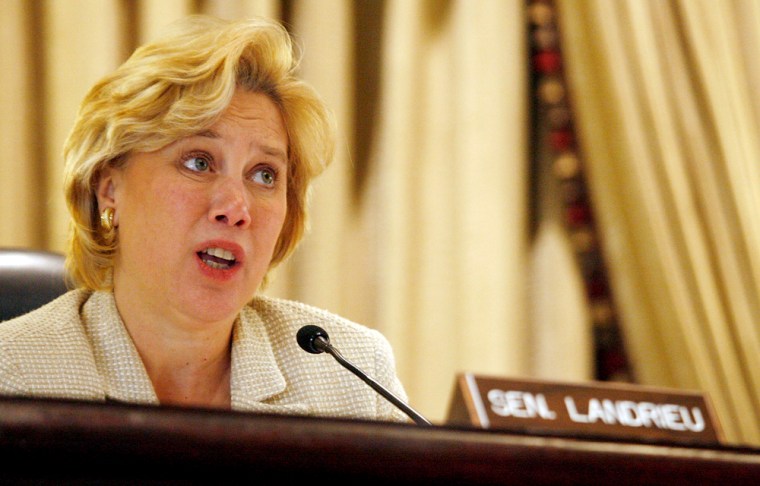
Landrieu eked out victories in 1996 and 2002 against underwhelming Republican nominees. In both races New Orleans supplied nearly all of her winning margin, but the city's population has shrunk since Hurricane Katrina. In 2002, she won by 42,000 votes, and the question now is whether those 42,000 votes still exist. Landrieu is not helped by the fact that the state appears to be trending Republican; voters look likely to elect a GOP governor this year.
Landrieu has always walked a fine ideological line, compiling a moderate voting record while not alienating her party's base or Senate Democratic leaders. The incumbent will argue that she has found a good balance. Yet Republicans are certain to portray her as an out-of-step liberal.
The likely Republican nominee is a newcomer to the party. State Treasurer John Kennedy announced in August that he was leaving the Democratic Party and would stand for re-election this year as a Republican. He is running unopposed, but is advertising heavily across the state in what many assume is a precursor to a Senate bid. Kennedy was a Senate candidate in 2004 and drew a respectable 15 percent in a seven-person nonpartisan contest. Democrats are certain to question the sincerity of Kennedy's party switch and to remind voters that he ran to the left in 2004.
After years of criticism that she runs lackluster campaigns and that her Senate office was unresponsive to constituents, Landrieu has made changes and is getting much better reviews. She is likely to highlight her efforts to assist the state after Katrina and to argue that Louisiana needs a senator in the majority. Still, it is equally likely that Landrieu will be fighting for her political life.
Maine
Two-term Republican Sen. Susan Collins is an avowed moderate who is popular with voters, but that hasn't stopped Democrats from labeling her "the Lincoln Chafee of 2008," a reference to another moderate Republican senator from New England who lost his re-election bid last year.
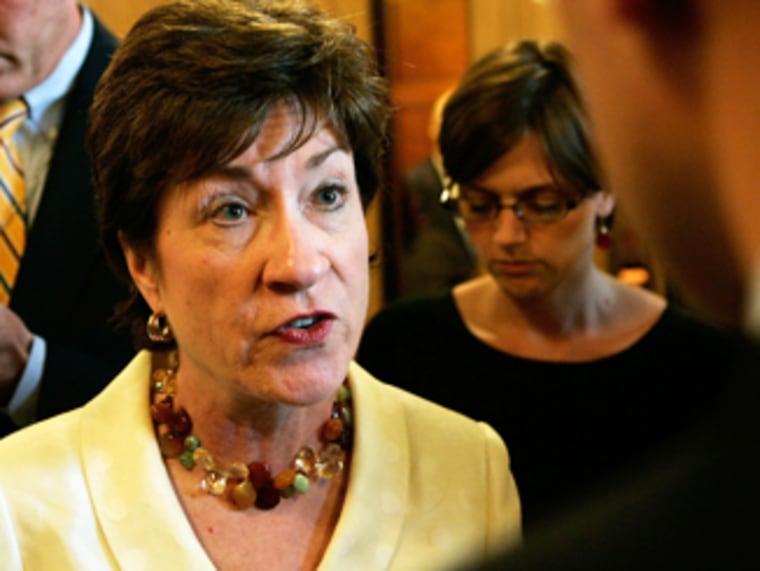
Despite Chafee's centrist record and frequent opposition to President Bush's policies, Democrats successfully tied him to the unpopular Bush and to the war in Iraq, which Chafee opposed. They plan to use the same strategy against Collins. There are, however, two critical differences between Chafee and Collins: She does not have the kind of baggage he had going into the race, and she won't be facing a debilitating primary.
The presumptive Democratic nominee is Rep. Tom Allen, who was first elected in 1996 to represent the Portland-based 1st Congressional District. Allen has amassed a liberal voting record, including voting against authorizing Bush to use force in Iraq, that he says is more in line with the views of voters than is Collins's record. Allen is not without challenges, though. He needs to get better known in the sprawling 2nd District, the only other congressional district in the state. And he needs to educate voters about his own record while tackling the tougher job of redefining Collins.
Early polling gives Collins a very healthy lead and solid job-performance ratings, meaning that Allen has much work to do. But Maine is a small state with inexpensive media markets, and Allen will have the time and the resources to make his case.
Minnesota
GOP Sen. Norm Coleman sits near the top of the Democrats' target list, but he will have to wait until June to find out who his challenger will be. Four Democrats are seeking the nomination; because the candidates have agreed to forgo a primary, a state party convention will select the nominee.
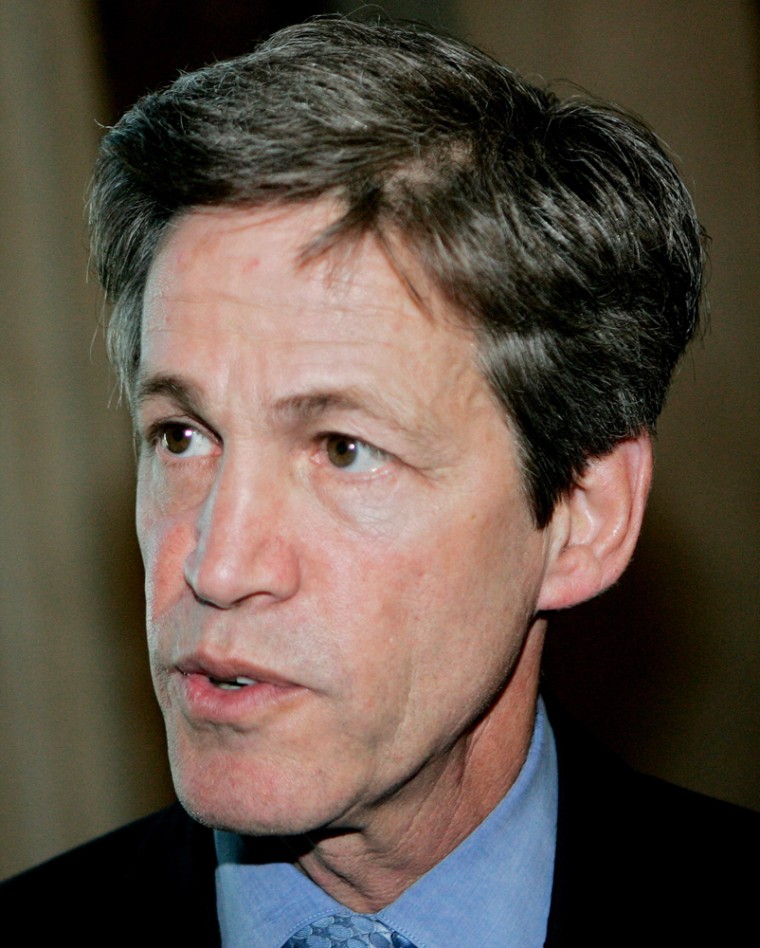
The front-runners are satirist Al Franken and 2000 Democratic Senate candidate Mike Ciresi. Franken has put together a professional campaign and is raising money at an impressive clip, but he starts the race with high negatives. Ciresi is a much stronger candidate than he was in 2000. He is trying to turn Franken's celebrity against him, arguing that the comedian is unelectable.
Democrats are likely to make the war in Iraq and Coleman's support of Bush's agenda the central issues in the general election. Polling gives Coleman comfortable leads over both of the top Democrats, but this race will become very competitive once the Democrats have a nominee.
Nebraska
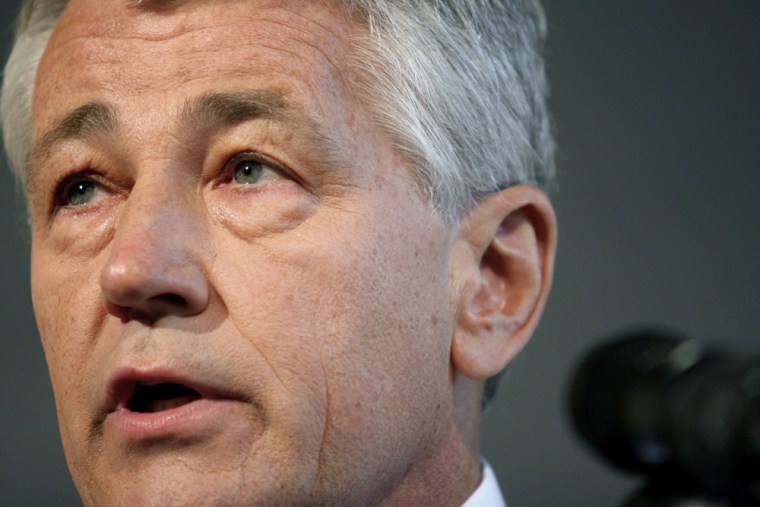
Whether the contest to succeed retiring GOP Sen. Chuck Hagel is competitive depends entirely on whether Democrat Bob Kerrey runs. Kerrey, a former governor who served in the Senate from 1989 to 2000, is president of the New School University in New York City, but he has expressed interest in returning to Nebraska for this race.
Republicans appear to be headed toward a primary pitting popular former Gov. Mike Johanns, who resigned last month as secretary of Agriculture, against state Attorney General Jon Bruning and businessman Pat Flynn. The young and ambitious Bruning was prepared to challenge Hagel in a primary, making it unlikely that he will step aside for Johanns, who has the backing of much of the party establishment. Johanns is favored to win the nomination, but Bruning is likely to force him to really work for it.
A Johanns-Kerrey matchup would be a battle of political titans. If Bruning is the GOP nominee, Kerrey would have a small advantage. Absent a Kerrey candidacy, though, Republicans would be favored to hold the seat.
New Hampshire
Republican John Sununu must feel as if he is running in a different state than the one that elected him to the Senate in 2002. Over the past few years New Hampshire has gone from being a Republican-dominated state to one where Democrats rule. In 2006 alone, voters re-elected the Democratic governor, unseated both GOP members of the U.S. House, and pushed up Democrats' share of seats in the state Legislature from 37 percent to 60 percent.
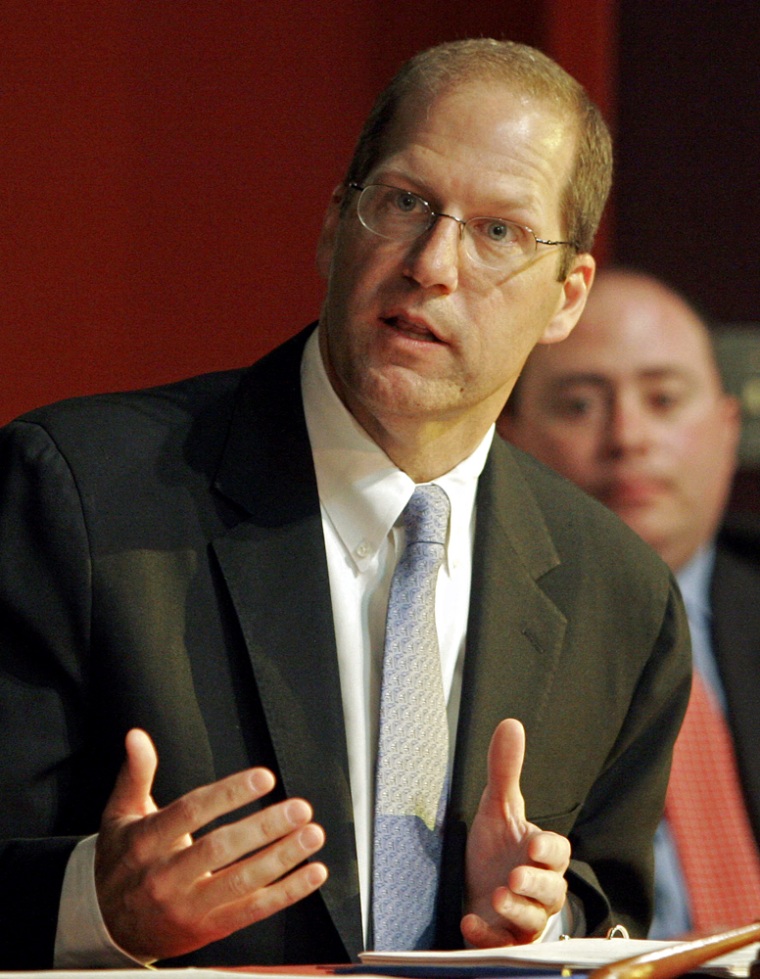
One reason for this shift is the influx of Massachusetts residents who moved to New Hampshire in search of lower taxes and more-affordable housing. Another factor is anger over the war in Iraq. Both issues define Sununu's new reality. His voting record, once seen as in step with the electorate, now appears to be to the right of many voters, especially on Iraq.
Still, if the political landscape looks different, the matchup is familiar. The presumptive Democratic nominee is former Gov. Jeanne Shaheen, who ran against Sununu in the 2002 Senate race but lost, 47 percent to 51 percent. In that contest, Shaheen presented herself as a moderate who supported Bush's tax cuts and the war in Iraq. Voters are likely to see a very different candidate this time. Sununu portrayed Shaheen as an ineffective governor who didn't address the state's problems. Although he is likely to raise it again, that argument may not be as effective because Shaheen has been out of office for nearly five years.
Polling gives Shaheen a lead of 5 to 16 points, making Sununu his party's most endangered incumbent.
New Mexico
GOP Sen. Pete Domenici's surprise announcement two weeks ago that he is retiring because of health reasons has caused political upheaval in the state as politicians on both sides of the aisle explore bids to succeed him. Open Senate seats are rare in New Mexico; the state has not had one since 1972.
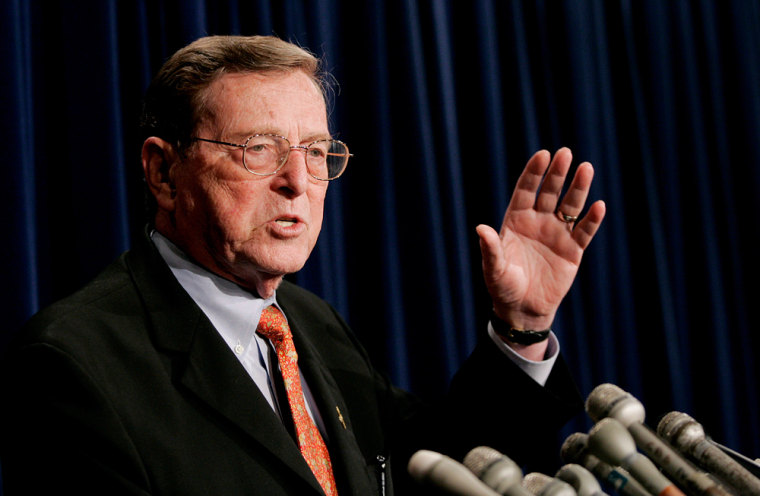
On the Republican side, Rep. Heather Wilson immediately jumped in. Wilson, who has represented the Albuquerque-based 1st Congressional District since 1998 and has had to fight for re-election every two years, is an aggressive campaigner and strong fundraiser with a moderate record in a swing district. GOP Rep. Steve Pearce announced this week that he will run as well. First elected in 2002, Pearce represents the 2nd Congressional District, which encompasses the southern two-thirds of the state. He has easily won re-election.
Albuquerque Mayor Martin Chavez has entered the Democratic primary, but Democrats are courting Lt. Gov. Diane Denish. Developer Don Wiviott was already in the race and says he plans to stay.
This field will take some time to sort itself out, but Democratic Gov. Bill Richardson is casting an imposing shadow over it. Although the term-limited Richardson is running for president and has said he has absolutely no interest in entering this contest, the February 12 filing deadline falls after the early presidential primaries and caucuses, leaving him time to change his mind. If Richardson were to run, he would be a heavy favorite in both the primary and the general election.
If Richardson doesn't run, this should be a very competitive race in a state that both parties will target in the presidential contest.
Oregon
Democrats view Sen. Gordon Smith as another blue-state Republican incumbent ripe for defeat if they can successfully tie him to Bush and the unpopular war.
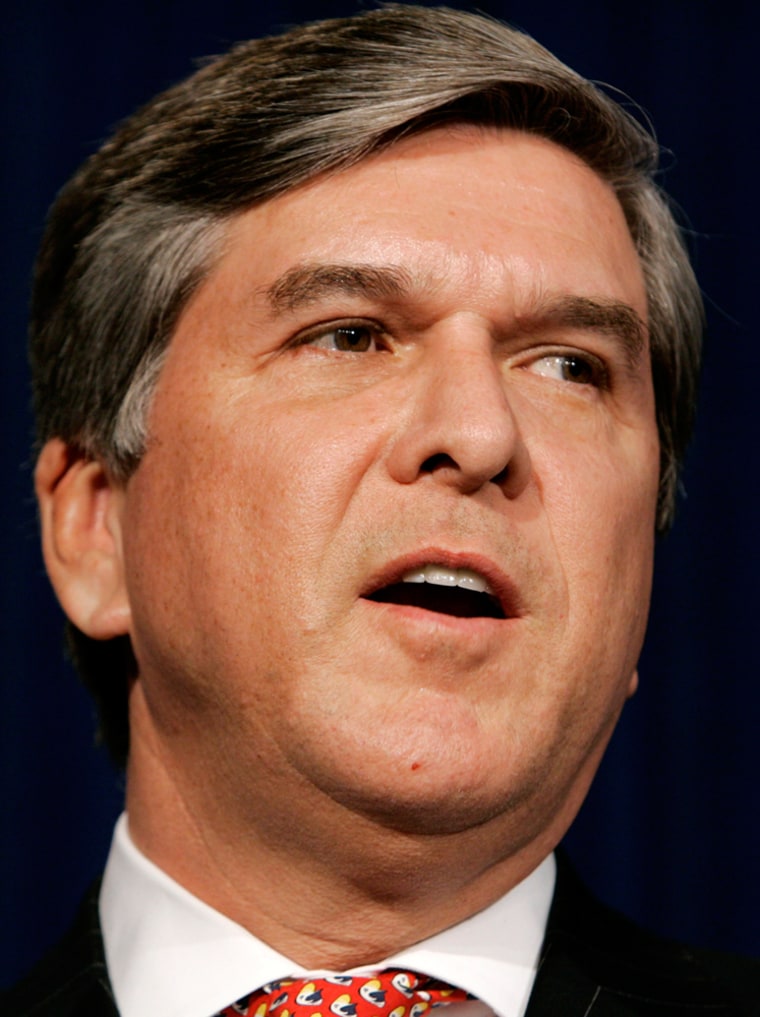
Smith voted to authorize Bush to use force in Iraq, but has become a vocal opponent of the war. Democrats, however, contend that his conversion is too little, too late. And even though Smith has a relatively moderate voting record, Democrats plan to highlight the instances in which he has voted with Bush and the GOP leadership in the Senate.
Still, Smith won't be easy to oust. He is attentive to constituents and runs solid campaigns. And he can reach into his own deep pockets if necessary.
State House Speaker Jeff Merkley is the favorite to win the Democratic primary, despite a few drawbacks: He isn't well known statewide, and he is an untested fundraiser. He will also have to defend his record in the state Legislature, including voting for a resolution supporting the war in Iraq. Merkley says he voted to support the troops, not the war.
Polling shows a potentially close race, with Smith well under 50 percent and a significant number of voters undecided. The presence of a credible third-party candidate -- John Frohnmayer, who chaired the National Endowment for the Arts during the George H.W. Bush administration -- will complicate the situation further. This contest will become competitive, but Smith holds an advantage for now.
Virginia
This race offers Democrats their best opportunity to pick up a GOP-held seat. Virginia, once solidly red, has joined the ranks of swing states because of Democratic-leaning Northern Virginia, which has accounted for a larger and larger share of the vote.
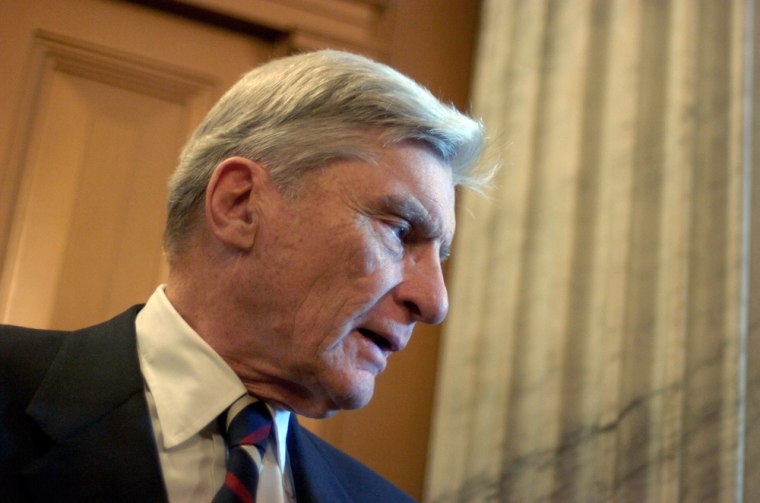
Democrats got their first choice of candidates when former Gov. Mark Warner, who remains very popular, decided to run. Warner dropped out of the 2008 presidential campaign last October, but his short-lived bid afforded him an opportunity to build a national fundraising base.
The situation on the Republican side is not so clear. Rep. Tom Davis, who represents the Northern Virginia-based 11th District, and former Gov. Jim Gilmore are likely to run, although neither has announced. An argument can be made that Davis would be the stronger general election candidate, given his moderate record, Fairfax County base, and fundraising prowess. But the state party has opted to hold a convention rather than a primary, giving the more conservative Gilmore an advantage.
Gilmore would face a number of challenges as the nominee: He lacks a base in Northern Virginia and is considered a weak fundraiser. Warner succeeded Gilmore as governor, and a race involving the two of them would likely become a referendum on their administrations -- with all evidence pointing to Warner as the more popular.
A recent poll gave Warner leads of 35 points over Davis and 30 points over Gilmore. This race is an uphill battle for Republicans.
